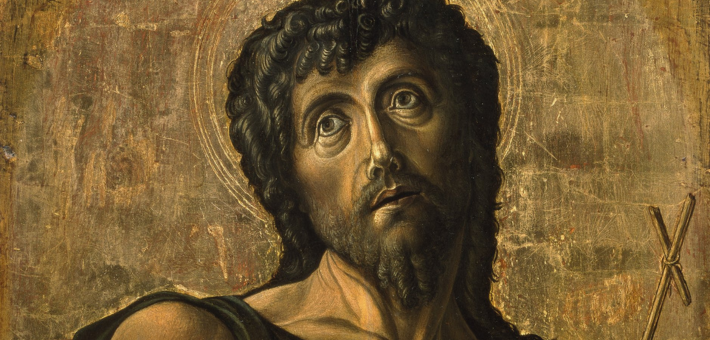Commentary on Romans 15:4-13
As part of the climax of Paul’s letter to the Romans (14:1–15:13), the message of this section is as difficult as it is important. Its importance lies in the priority it assigns to harmonious relationships among Christ-followers. Its difficulty lies in the challenges of achieving and maintaining that harmony. Those challenges require both divine resources and new patterns of life among humans.
One major motif that is truly central not only here but in the letter as a whole is Paul’s affirmation of God’s faithfulness. This is evidenced in a variety of ways—in Paul’s references to God’s steadfastness (15:5) and God’s “truth” (that is, God’s fidelity), for example, and, especially, in the way he links texts from Israel’s Scriptures (15:9–12)—texts that demonstrate with respect to God’s promises to Israel and God’s acceptance of the gentiles that God can be trusted. Whatever expectations Paul places before these Christ-followers are set against the backdrop of God’s prevenience and faithfulness.
Key to making sense of what Paul expects of his audience is his initial call to mutual hospitality: “Welcome one another, therefore, just as Christ has welcomed you, for the glory of God” (15:7). Within this letter, this is a transparent reference to Jews welcoming gentiles, and vice versa.
In this, the conclusion to the body of Paul’s letter, this point follows from the apostle’s use of a catena (or chain) of scriptural texts. Drawn from Deuteronomy (32:43; Romans 15:10), Isaiah (11:10; Romans 15:12), and the Psalms (18:49 and 117:1; Romans 15:9 and 15:11), these quotations are linked primarily by their reference to the gentiles (or the nations), and secondarily by the motif of praise.
Paul thus highlights God’s faithfulness to God’s promises regarding God’s place for the gentiles and, importantly, broadcasts the restoration of Israel realized in the common worship of God by the entire human family, Jew and gentile, united by their common hope in the one Messiah (15:7–8, 12–13). It is hardly coincidental that the apostle has come full circle from the opening of this letter, with its emphases on the risen Christ anticipated in the Scriptures (1:2–5) and on a humanity joined in its turning away from the worship of God (1:18–32).
Given the immediately preceding discussion of the weak and the strong (14:1–15:3), it is equally clear that the apostle’s concern and encouragement are now also aimed at an internal strife that seems to be rooted in differences of observance related to calendars and diet. On the one hand, Paul’s instruction underscores in no uncertain terms the priority of harmony in the family of believers and unity in shared praise of God. As he makes clear, food and drink should not lead to breaking ranks with each other; they are not essential to God’s royal rule (or “kingdom,” 14:17).
Differences of opinion and practice like this open opportunities not for disunity nor for mere tolerance of diversity, but for open-handed acceptance of each other and such differences. Moreover, this open-handed acceptance does not require or depend on brothers and sisters first changing their minds or agreeing with each other.
Later, Tertullian (circa 160–circa 225 CE) would imagine pagans saying of Christ-followers, “Look, how they love each other … and how they are ready to die for each other!” (Apologeticus 39.7); what he does not say is, “Look, how they agree with each other!” Human flourishing—joy, peace, and hope (15:13)—depends on God’s gift and on the work of the Holy Spirit (15:5, 13), to be sure, but also on following the cruciform, diaconal example of Christ Jesus (14:15, 18; 15:5, 8).
On the other hand, the very harmony on which Paul insists is difficult even to imagine, to say nothing of practice. Broadly speaking, this is because of the human tendency to join with others “like us,” so that difference cultivates divisiveness, resulting in walls guaranteeing all sorts of segregation (for example, economic, racial, life-stage, family status, ethnic).
For communities of Christ-followers, then and now, perhaps the most pressing, lingering question for how best to appropriate Paul’s instruction is the challenge of discerning what is and is not central to God’s royal rule. Here, pointedly, Christ-devotees are to be unified in their worship of God and hope in Christ, not separated by ethnicity, by different attitudes toward food and drink, or by diverse calendrical observances.
What, then, of present struggles within the church over worship practices or missional commitments? In relation to the church and world, what of, say, immigration or climate change? Paul’s bottom line is both important and challenging: The ideal of harmony could not be clearer. It represents both God’s creational purpose and God’s eschatological telos. And this raises the stakes on the question: Given God’s faithfulness and the unifying work of God’s Spirit, how do we cultivate life patterns marked by hospitality to those unlike ourselves?



December 7, 2025